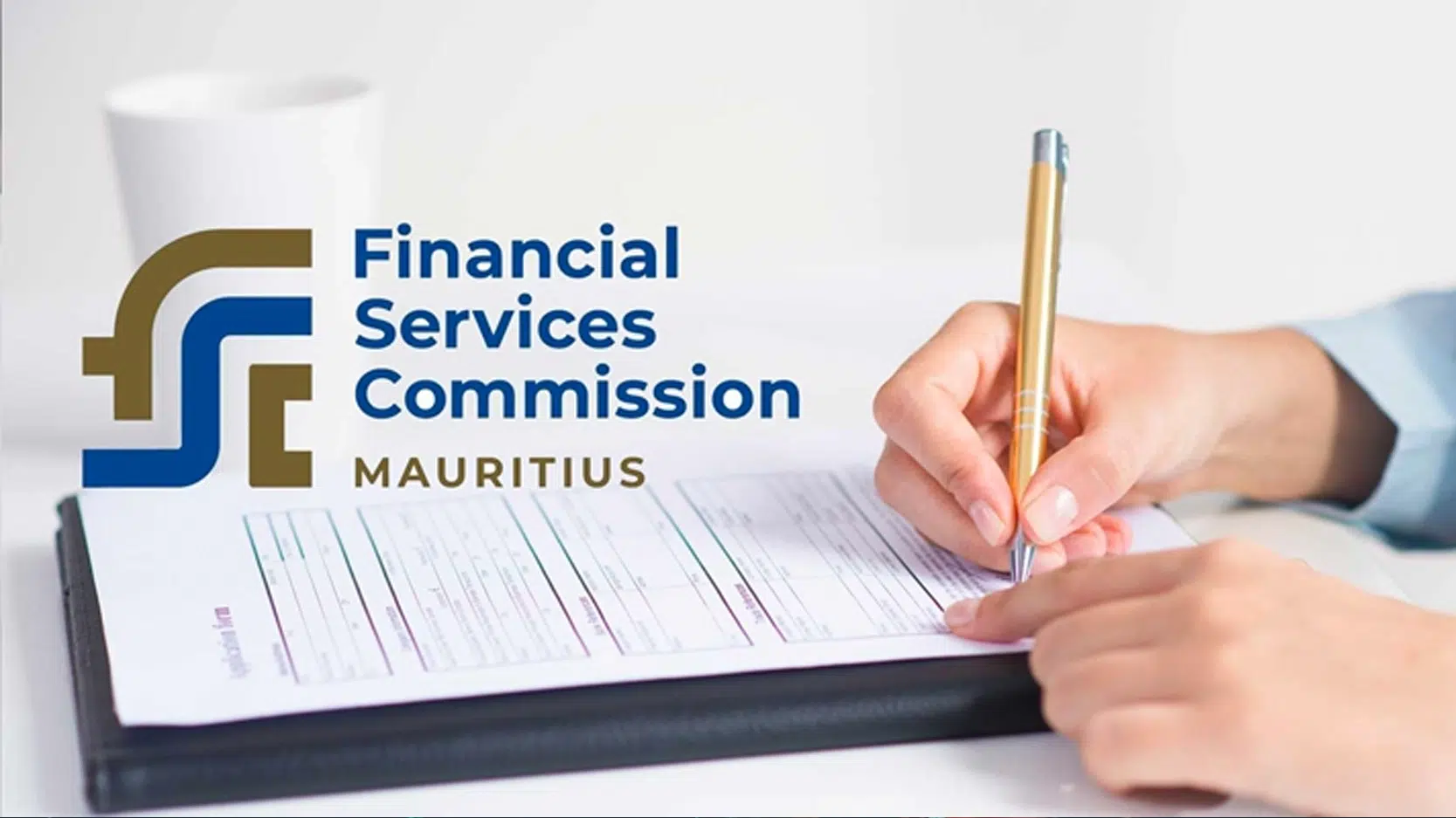FSC Regulated Forex Brokers
Responsibilities and Mission of the FSC
The “Financial Services Commission” (FSC) is a broad term that covers multiple independent financial regulatory bodies worldwide, such as the Belize Financial Services Commission (Belize FSC), the Mauritius Financial Services Commission (Mauritius FSC), and the British Virgin Islands Financial Services Commission (BVI FSC). Although their names are similar, each FSC has its own unique jurisdiction, regulatory framework, and level of protection.
The core mission of these FSCs typically revolves around promoting the development of the financial services industry in their respective regions, maintaining market integrity, combating financial crime, and, to some extent, protecting investors. They fulfill their duties by issuing licenses, establishing codes of conduct, monitoring market activities, and taking enforcement action against violations. For example, the Mauritius FSC aims to promote the development, fairness, efficiency, and transparency of financial institutions and capital markets, as well as to combat crime and misconduct to protect investors. The Belize FSC is committed to protecting the public interest, enhancing public confidence in the industries it regulates, and protecting investors from unfair, improper, or fraudulent practices.
Reputation of the FSC in the Global Financial Market
Compared to regulators widely considered “top-tier,” such as the FCA or ASIC, the various FSCs enjoy different reputations in the global financial market. Some FSCs, like the BVI FSC, “enjoy a good international reputation” due to their higher initial minimum capital requirements ($1,000,000) and strict supervision of financial companies. However, other FSCs, particularly those considered “offshore havens,” may offer less stringent regulatory standards, which can lead to lower levels of client protection.
This difference in reputation is mainly reflected in the protective measures for retail traders. Brokers regulated by the FSC are often able to offer higher leverage ratios, such as up to 1:1000 or even 1:2000, which stands in stark contrast to the FCA’s 1:30 leverage limit for retail clients. While high leverage can bring greater potential returns, it also comes with higher risks. Therefore, when choosing an FSC-regulated broker, traders must fully understand the specific regulatory details and scope of protection of its governing FSC.
How Does the FSC Protect Traders?
The various FSCs protect traders through a series of regulations, but the level of protection and mandatory requirements can vary by jurisdiction and are often not as comprehensive as those of top-tier regulators like the FCA.
- Client Funds Segregation: Many FSCs require regulated brokers to keep client funds in separate accounts, apart from the company’s operational funds. This measure is intended to ensure that in the event of a broker’s insolvency, client funds are not misappropriated or used to pay off company debts.
- Negative Balance Protection (NBP): NBP is not a mandatory requirement for all FSCs. However, many FSC-regulated brokers voluntarily offer this protection to ensure that retail traders’ losses do not exceed the amount deposited in their accounts. This provides traders with a certain risk cap, preventing them from incurring debts beyond their initial investment due to severe market volatility.
- Compensation Scheme: Unlike the FCA’s Financial Services Compensation Scheme (FSCS), FSCs generally do not have a mandatory, industry-funded comprehensive compensation scheme, or the compensation amount is lower. However, some FSC-regulated brokers may choose to join independent compensation funds, such as the Financial Commission’s Compensation Fund, which provides a certain amount of compensation to eligible clients (e.g., up to €20,000 per case).
- Leverage Limits and Risk Disclosure: Brokers regulated by the FSC are usually allowed to offer higher leverage ratios, such as up to 1:1000 or 1:2000. This gives traders greater financial flexibility but also significantly increases the risk of potential losses. In addition, FSCs typically require brokers to fully disclose the high risks associated with forex and CFD trading, ensuring that traders make investment decisions with a full understanding of the potential risks.
- Dispute Resolution Mechanisms: FSCs generally require brokers to establish internal complaint handling procedures. For disputes that cannot be resolved through internal channels, some brokers may choose to join independent third-party dispute resolution bodies, such as the Financial Commission, to provide clients with an additional avenue for appeal.
Overview of FSC Regulatory Features
| Regulatory Feature | FSC Regulation |
| Client Funds Segregation | Usually mandatory |
| Negative Balance Protection | Not mandatory, but many brokers offer it |
| Maximum Retail Leverage | Usually high |
| Compensation Scheme | Usually not mandatory or the amount is low |
| Strict Risk Disclosure | Mandatory |
| Dispute Resolution Mechanism | Internal procedures, with some brokers offering third-party resolution |
| Regulatory Reputation | Varies by FSC, typically offshore regulation |
Cashback Island Partners: Quality Brokers Regulated by the FSC
Choosing an FSC-regulated broker means you will be operating in a relatively flexible trading environment, often accompanied by higher leverage options. Cashback Island understands traders’ need for diverse choices, so we are committed to carefully selecting and recommending these quality FSC-regulated partners. Through Cashback Island, you can not only enjoy additional rebates but also choose the broker that best suits your trading strategy while understanding their regulatory framework.
Introduction to Selected FSC-Regulated Brokers
Below are a few selected FSC-regulated partner brokers from Cashback Island that have a strong reputation in the market and offer excellent trading services:
Comparison of Cashback Island’s FSC-Regulated Partner Brokers
| Broker | FSC Regulation Number | Main Trading Platforms | Maximum Leverage | Minimum Deposit | Trustpilot Score | |
| Exness | GB20025294 | MT4, MT5, Exness WebTrader, Exness APP | Unlimited | $10 | ⭐4.8 | |
| Ultima Markets | GB 23201593 | MT4, MT5, Um Trading App | 1:2000 | $50 | ⭐4.0 | Open Account |
| XM | GB23202700 | MT4, MT5 | 1:1000 | $5 | ⭐2.3 | |
| TMGM | GB22201012 | MT4, MT5, TMGM APP | 1:1000 | $100 | ⭐4.2 | |
| Hantec Markets |
C114013940 |
MT4, MT5, Hantec APP, Hantec Social | 1:2000 | $50 | ⭐4.9 | Open Account |
| GMI | 158643 C1/GBL | MT4, MT5, GMI EDGE | 1:1000 | $130 | ⭐2.1 | Open Account |
| IK21000018 | MT5, ActTrader | 1:1000 | $50 | ⭐4.8 | Open Account |
How to Choose the Right FSC-Regulated Broker for You?
Making the best choice among the many FSC-regulated brokers requires more detailed consideration, especially in understanding the differences between various FSCs and the risks associated with high leverage. We recommend that you conduct a comprehensive assessment based on the following aspects:
- Accurately assess your trading needs and risk tolerance: Brokers regulated by the FSC typically offer higher leverage, which means both potential profits and losses are magnified. You should choose a leverage level that is appropriate for your trading style and risk tolerance.
- Be sure to verify regulatory information yourself: Since “FSC” is a broad term, you should make it a habit to personally visit the official website of the FSC the broker claims to be under, and enter the license number to verify that it is a valid and regulated entity. At the same time, clarify which FSC regulates the specific entity your account is opened with, as this directly determines the applicable protection clauses.
- Comprehensively evaluate the broker’s services and fees: Carefully compare the spreads, commissions, deposit and withdrawal fees, and other potential hidden costs of different brokers. In addition, you should also evaluate the quality and response time of their educational resources, research tools, and customer support. Pay special attention to whether the broker offers negative balance protection and any form of compensation scheme, as these are not mandatory requirements for all FSCs.
- Make good use of Cashback Island’s exclusive advantages: Cashback Island not only provides you with a list of quality FSC-regulated brokers, but also offers additional cash rebates while you trade. This means you can choose the broker that best meets your needs with a full understanding of regulatory differences and risks, and earn extra income.
Related Articles
-
The flames of the U.S.-China trade war continue to burn. As the United States once again wields the tariff weapon, even including Hong Kong in the taxation scope for the first time, alarm bells in the global financial markets are ringing again. This is not just a power struggle between...2025 年 10 月 11 日
-
In the fast-paced forex market, the cost of every trade slowly eats away at your profits like a frog in boiling water. Many traders focus on finding the perfect entry point but overlook the most fundamental cost—the 'spread.' Choosing a high-quality low spread broker is the most significant difference between...2025 年 10 月 11 日
-
Want to use the credit card miles accumulated from your spending to travel the world, but always find the system confusing? You see others easily redeeming business class tickets, while your own air miles seem to devalue or expire without you noticing. Don't worry, you're not alone. This article is...2025 年 10 月 11 日












